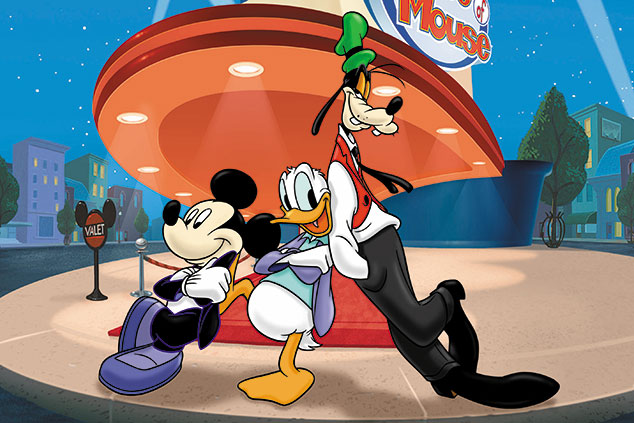
Emboldened by a new court ruling, Comcast is chasing Ruper Murdoch’s 21st Century Fox. Can it beat Disney to the prize? Alice Gråhns reports.
Corporate America has “entered an ‘anything goes’ merger environment”, says Tara Lachapelle on Bloomberg View. A judge has given the green light to the $109bn merger of AT&T and Time Warner, which will create a media giant marrying AT&T’s mobile, cable and satellite TV business with Time Warner’s portfolio of assets, including HBO, Warner Brothers and CNN. The US government had fretted that the tie-up would reduce competition, but not only did the judge disagree – he also imposed no conditions at all on the two companies. As a result, cable giant Comcast and Disney “have each been emboldened to do their own momentous transaction”. They are eyeing up the same target: Rupert Murdoch’s 21st Century Fox, which has “the last big bundle of TV and film assets for the taking”.
Disney can still match Comcast
Last week Comcast produced a “fast, aggressive bid” for businesses that 21st Century Fox agreed to sell to Walt Disney a few months ago, says Elizabeth Winkler in The Wall Street Journal. At $65bn, it is a very generous all-cash offer designed to prompt Murdoch to turn away from Disney and “distracting” him from the regulatory problems that would accompany a Comcast deal. The company is offering a $2.5bn termination fee if the deal is blocked, as well as a $1.5bn termination fee for Disney to break up its deal with Fox. Still, Fox must not get distracted by the “flashy number”. Judge Richard Leon, who approved AT&T-Time Warner, made clear that the ruling applied only to that particular deal. And the Justice Department has kept a wary eye on Comcast since its merger with NBC, which was approved in 2011 after Comcast agreed to specific conditions. Comcast-Fox, moreover, would bring up competition issues that AT&T-Time Warner didn’t. So while Comcast’s bid may be higher than Disney’s, which has so far only offered to pay $52.4bn in shares, it is nothing Disney “can’t handle,” says Lachapelle. Comcast’s cash offer is only worth $65bn “if you are confident” that the AT&T-Time Warner ruling applies to Comcast.
Murdoch’s dilemma
Rupert Murdoch, meanwhile, is left with a “fundamental dilemma”, says Lex in the Financial Times. Does he want to quit the entertainment business? Taking Disney’s stock lets him stay exposed to the sector; the Comcast bid is “a second chance… to get out”. He rejected a cash bid from Comcast last year because he was concerned regulators would thwart it. “Being a mogul is not easy. Neither is knowing when to give it up.”
• Since this article went to print it has been reported that Fox’s board has accepted a raised offer from Disney of $71bn, subject to shareholder approval
Rolls-Royce’s relentless restructuring
“Why now?” asked Chris Bryant on Bloomberg View. Rolls-Royce said last week that it would eliminate 9% of its workforce. Yet when Warren East took over the aircraft engine-maker in 2015 he aimed to transform productivity and deliver “an unprecedented rollout of new engines”. He has already presided over thousands of job losses, while airlines complain that Rolls’ Trent engines have grounded planes. You’d think “the last thing Rolls-Royce needs right now is yet more disruption”. But East insists that the cuts, expected to deliver £400m in annual savings, have nothing to do with those problems and won’t affect customers.
Nevertheless, “no one can accuse East of wasting a good crisis”, says Lex in the FT. Aside from cutting 4,600 jobs, he is “anointing cash flow as the main measure of performance”. This reflects rule changes in accounting that defer profit recognition. It’s a good time in the business cycle to make this change. “Cash-draining engine deliveries will slacken in the medium term, ensuring cash-swelling service revenues start to rise.” Rolls estimates that it will generate £1.2bn in free cash flow by 2020. It made £270m in 2017 and £780m in 2013, “its last good year”.
East expects a boost from reducing the loss Rolls makes when it sells engines to airlines, from £1.6m today to £400,000 by 2022, says Carol Ryan on Breakingviews. Buying parts from Mexico rather than
Spain will help cut costs. Shareholders don’t seem to be fully pricing in the benign outlook, though. Perhaps Rolls’ “history of one-off costs” has stoked their scepticism.
City talk
► Google’s strategic partnership with JD.com, cemented with the purchase of less than 1% of the Chinese retailer for $550m, stems from a shared problem, says Robert Cyran on Breakingviews: “what to do about Amazon and Alibaba”. Google delivers advertisements alongside searches for products. But Amazon’s rise to become the dominant US internet retailer means more searches and advertisements on its own shopping platform, sidelining Google. And JD “risks being starved of oxygen” by its online-retail rivals. “Teaming up might eventually benefit both.”
► “Don’t get too excited by the talk from CYBG about creating the UK’s sixth largest bank via the £1.7bn takeover of Virgin Money,” says Nils Pratley in The Guardian. When it comes to lending, the combination will be less than half the size of the fifth-largest bank. And building society Nationwide, which operates in the same market, has 15 million members: CYBG and Virgin together can only muster six million. The real winner will be Richard Branson’s Virgin Enterprises, owner of Virgin Money. “One can admire Branson’s skill in pushing his brand deeper into financial services.”
► “Times must be tough on the high street,” says Ben Marlow in The Daily Telegraph. Even the hitherto optimistic boss of Debenhams, Sergio Bucher, “is starting to sound down in the dumps”. After delivering a third profit warning this year, he has admitted that the group’s trading reflected “exceptionally difficult times”. At £35m-£40m, the year’s pre-tax profit is expected to undershoot forecasts by around 30%. And Debenhams doesn’t see the backdrop changing “in the near future”. No wonder the shares plunged 18% on the latest disappointment .